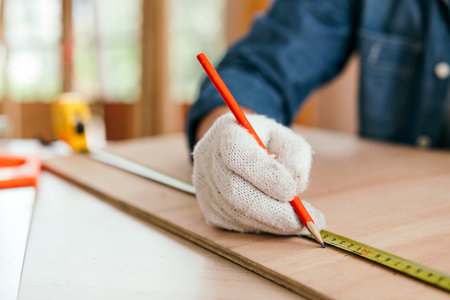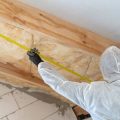Introduction to Open Houses in the U.S.
Open houses are a cornerstone of the American real estate experience, serving as a prime opportunity for potential buyers to tour a property in person and get a feel for the space without the pressure of a private showing. In the U.S., open houses are often scheduled on weekends and widely advertised, attracting not only serious buyers but also curious neighbors and casual lookers. The cultural expectation is that these events are relaxed, informal, and buyer-focused. One topic that consistently sparks debate among sellers and agents alike is whether or not the homeowner should be present during these showings. This decision can influence how buyers perceive the property, their comfort level during the visit, and ultimately, the success of the sale. Understanding the purpose of open houses and how seller presence aligns with American customs is crucial for making an informed decision when listing your home.
Pros of Being Present as a Seller
When considering whether to be present during your open house, it’s important to weigh the potential benefits that come with being on-site. Many sellers find that their involvement can have a positive impact on prospective buyers and potentially speed up the sales process. Here are some key advantages:
1. Providing Firsthand Information
No one knows your home better than you do. By being present, you can offer detailed information about upgrades, renovations, neighborhood features, and the property’s unique history. Buyers often appreciate direct answers to questions about utility costs, local schools, or even small quirks of the home that might not be in the listing description.
2. Showing Pride in Ownership
Your presence demonstrates pride and personal investment in your property. When buyers see a seller who cares deeply about their home, it can create a more inviting and trustworthy atmosphere. This emotional connection may help buyers envision themselves living there.
3. Answering Buyer Questions Immediately
Buyers frequently have questions on the spot—about appliances, warranties, or HOA rules. Being available allows you to respond right away rather than relying on delayed answers from agents or third parties. Quick responses can prevent hesitation and keep momentum going for interested parties.
Summary Table: Pros of Seller Presence at Open Houses
| Benefit | Description |
|---|---|
| Firsthand Information | Sellers provide accurate, detailed answers and context about the home. |
| Pride in Ownership | Demonstrates care and creates a positive impression for buyers. |
| Immediate Responses | Quickly resolves buyer concerns and keeps interest high. |
While these advantages can be significant, it’s essential to consider how they align with your personality and comfort level during showings. In the next section, we’ll review some of the potential drawbacks to being present at your own open house.
![]()
3. Cons of Being Present as a Seller
While it might seem like a good idea to be present at your own open house, there are several drawbacks that sellers should consider. One of the main issues is that your presence can make buyers uncomfortable. When homeowners are around, potential buyers may feel like they’re intruding and could rush through the property rather than taking their time to really explore each room. This discomfort can create an awkward atmosphere, making it harder for visitors to imagine themselves living in your home.
Another important consideration is the risk of awkward encounters. Buyers often want the freedom to discuss what they like and dislike about a property openly with their agent or family members. If you’re nearby, they might hold back on important feedback or hesitate to ask questions that could be vital to their decision-making process. This can limit honest communication and even prevent buyers from expressing concerns that a real estate agent could address on your behalf.
Lastly, being present during an open house can hinder honest feedback from both agents and potential buyers. People are less likely to provide candid comments if they worry about offending the seller. Without this direct input, you might miss out on valuable insights that could help you make adjustments and ultimately sell your home faster. In short, while you may want to share your home’s story personally, stepping back allows others to envision their own future there—and gives you the best chance for a successful sale.
Agent Perspective: What U.S. Realtors Recommend
When it comes to open houses, most American real estate agents agree on one main point: sellers should generally not be present. This advice isn’t just based on tradition—it’s grounded in practical experience and market expectations. Here’s a closer look at what U.S. Realtors typically recommend and why trusting your listing agent is key.
Why Agents Prefer Sellers Stay Away
Real estate professionals believe that buyers need to feel comfortable enough to explore a home, ask questions, and imagine themselves living there. If the seller is present, buyers may feel rushed or hesitant to voice their honest opinions. This can limit feedback and potentially slow down the selling process.
Common Reasons Cited by Agents
| Reason | Explanation |
|---|---|
| Buyers’ Comfort | Buyers are more open when the homeowner isn’t around. |
| Unbiased Feedback | Agents can gather honest comments from visitors. |
| Professional Guidance | Your agent knows how to highlight your home’s best features. |
| Market Norms | In most U.S. markets, it’s expected that sellers leave during showings and open houses. |
The Importance of Trusting Your Listing Agent
A big part of the selling process is putting your trust in your agent. Experienced agents are trained to handle questions, address objections, and create an inviting atmosphere for potential buyers. By stepping aside, you allow your agent to do their job effectively—something that often leads to better results for you as a seller.
Key Takeaway for Sellers
If you’re unsure about leaving your home during an open house, have an honest conversation with your Realtor. Most will reassure you that stepping out is not only normal but also beneficial. Their professional insight and understanding of local market expectations can guide you toward the best decision for your sale.
5. When Seller Presence Might Make Sense
While many real estate experts recommend sellers stay away during open houses, there are certain situations where your presence could actually work in your favor. Here are a few scenarios where being on-site might make sense:
Selling a Unique or Historic Home
If your property has historic significance or truly unique features—think original woodwork, antique fixtures, or a fascinating backstory—being present allows you to provide context that even the best agent might miss. You can share personal anecdotes or highlight renovations that preserve the home’s character, creating an emotional connection with buyers who appreciate authenticity and history.
Highlighting Special Property Features
Does your house have hidden upgrades, energy-efficient systems, or smart home technology? As the homeowner, you know all the details: from the brand of insulation in the attic to the custom lighting controls in the den. By attending the open house, you can point out these benefits and answer technical questions on the spot—potentially justifying your asking price and differentiating your home from others on the market.
Addressing Buyer Concerns Directly
Sometimes buyers have concerns that only you can address convincingly. For instance, if you’ve made recent repairs after a storm or flood, you can provide firsthand information about what was done and why. This transparency can build trust and help nervous buyers feel more confident about making an offer.
Creating a Welcoming Atmosphere
For smaller communities or neighborhoods where everyone knows each other, having the seller at the open house can foster a sense of welcome and belonging. Sharing stories about block parties, local traditions, or nearby amenities helps buyers envision themselves becoming part of the community.
A Word of Caution
If you do choose to attend, remember to strike a balance: be available for questions but avoid shadowing visitors or making them feel pressured. Work closely with your real estate agent to ensure your presence is helpful—not overwhelming—for potential buyers.
6. Best Practices If You Decide to Attend
If you’ve decided to be present during your open house, it’s important to strike the right balance between being helpful and maintaining a professional distance. Your goal should be to support your agent and create a welcoming atmosphere for buyers—without making anyone feel uncomfortable or pressured.
Maintain Professionalism at All Times
First impressions matter. Dress in business-casual attire and greet visitors politely, but avoid hovering or offering unsolicited opinions. Let your real estate agent take the lead in answering questions about the property’s features, pricing, or negotiations. Remember, many buyers will want to envision themselves living in the space, so keep your interactions friendly but brief.
Set Clear Boundaries
If you choose to stay on-site, consider remaining in a separate area such as the backyard, patio, or a home office. This allows buyers and their agents to explore freely while still making yourself available for specific questions that only a homeowner can answer—like recent upgrades or neighborhood insights. Communicate with your agent beforehand to establish how and when you’ll participate in conversations.
Support Without Interfering
- Avoid Sales Pitches: It’s natural to want to highlight what makes your home special, but leave most of the selling to your agent. Over-explaining can make buyers feel rushed or skeptical.
- Be Prepared for Criticism: Buyers may express honest opinions about your home in front of you. Stay composed and don’t take feedback personally—it’s all part of the process.
- Respect Privacy: Give visitors space and privacy to discuss among themselves. Avoid eavesdropping or following them from room to room.
Coordinate with Your Agent
Make sure you and your agent are on the same page regarding your role during the open house. Share any unique details that could help answer buyer questions effectively, but trust your agent’s expertise when it comes to handling objections or negotiations.
Final Thought: Know When to Step Back
Your presence can be an asset if handled thoughtfully, but remember—the open house is ultimately about letting buyers fall in love with your property on their own terms. By maintaining professionalism, setting boundaries, and supporting without interfering, you’ll help create an environment where serious offers are more likely to follow.
7. Conclusion: Making the Right Choice for Your Sale
Deciding whether to be present during your open house is a personal choice that depends on your comfort level, your goals as a seller, and the dynamics of your local real estate market. As discussed, there are clear pros—such as being able to answer questions directly and adding a personal touch—and cons, like potentially making buyers feel uncomfortable or disrupting the professional process your agent provides. In the United States, it’s standard practice for sellers to step out during open houses, allowing agents to do what they do best: showcase your home in an inviting and neutral environment. However, if you have unique insights about your property or want to ensure special features are highlighted, discuss these with your agent beforehand to ensure buyers get the full picture. Ultimately, trust your real estate professional’s advice and consider what will make you feel most at ease while also maximizing your home’s appeal to potential buyers. Every sale is different—choose the approach that aligns best with your needs and the expectations in your community.


